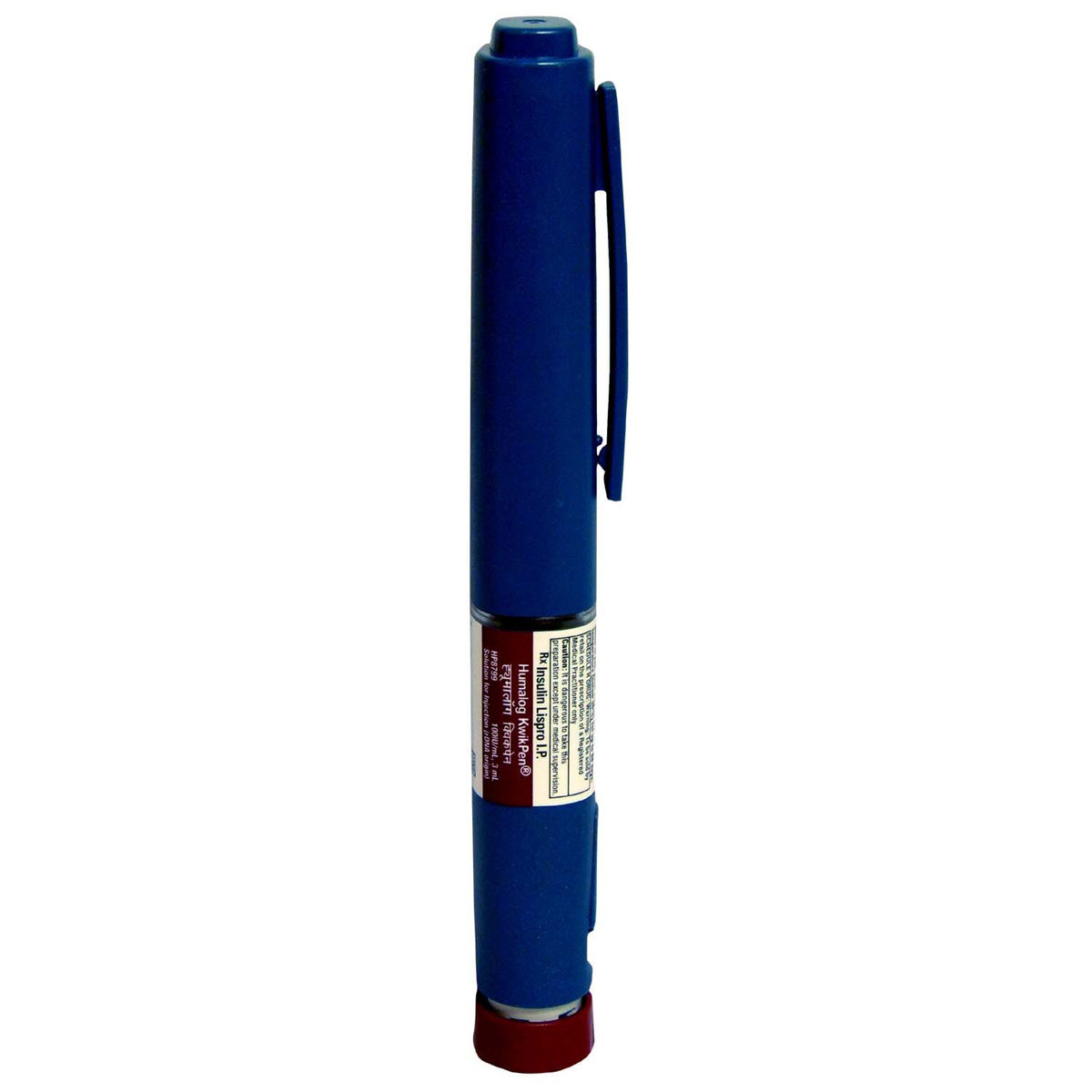Eglucent 100Iu/ ml Catg Injection 3 ml
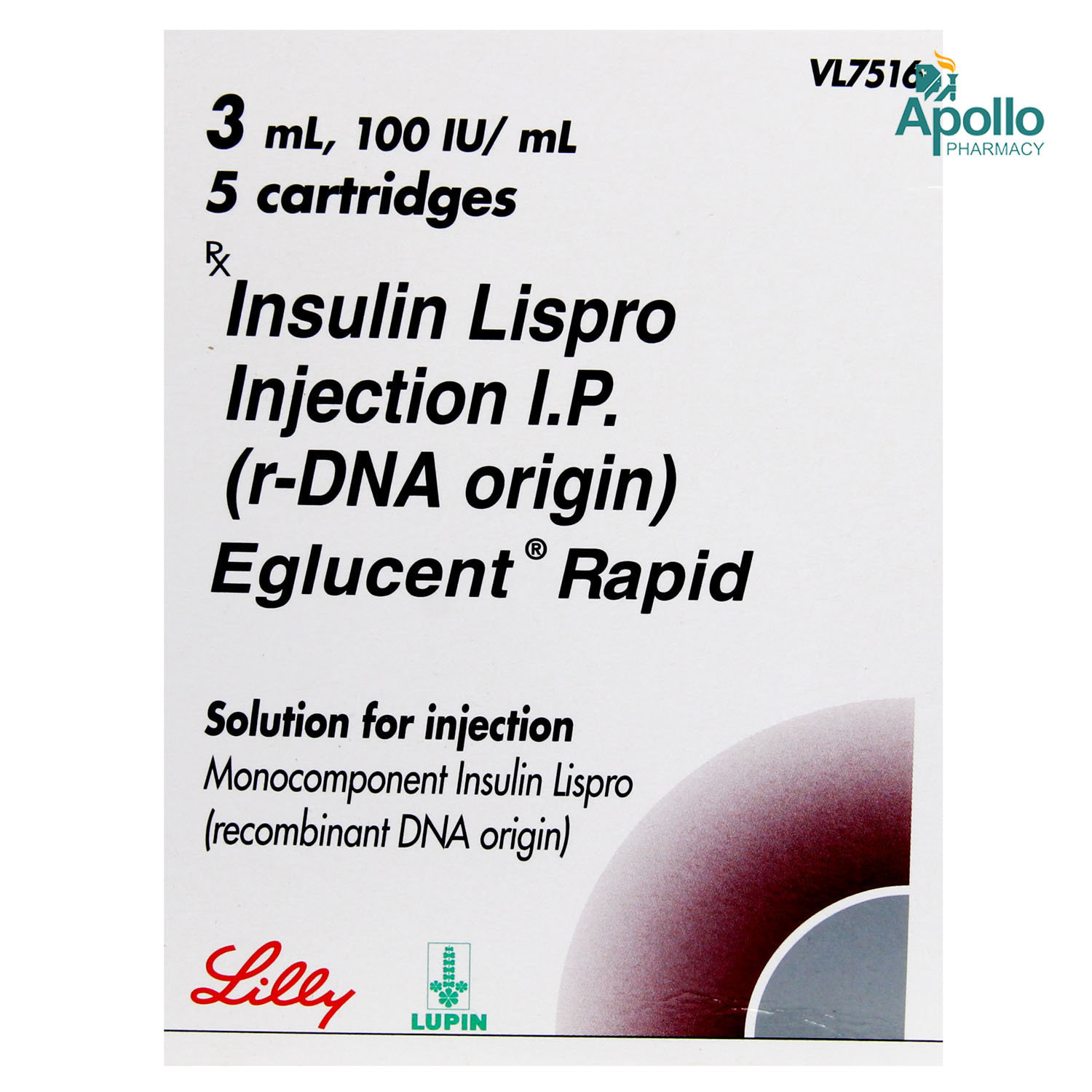
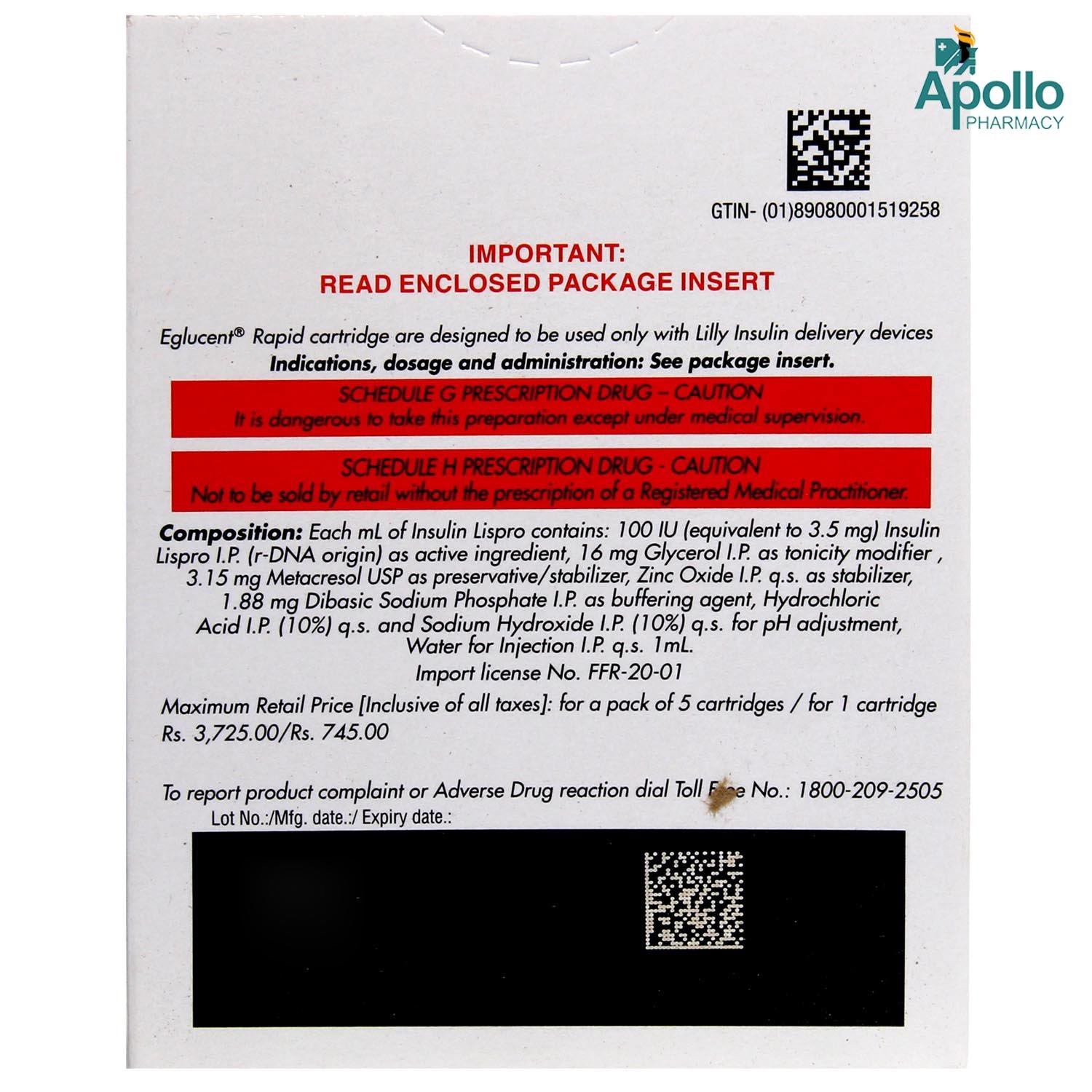


MRP ₹1089
(Inclusive of all Taxes)
₹130.7 Cashback (12%)
Provide Delivery Location
Online payment accepted
 Prescription drug
Prescription drugWhats That
Composition :
Manufacturer/Marketer :
Consume Type :
Expires on or after :
Return Policy :
About Eglucent 100Iu/ ml Catg Injection 3 ml
Eglucent 100Iu/ ml Catg Injection 3 ml contains human insulin used to treat type 1 and type 2 diabetes mellitus. Diabetes mellitus is a condition that affects how the body processes glucose. In Diabetes Mellitus Type 1, the body does not produce enough insulin to regulate blood sugar levels. On the other hand, in Diabetes Mellitus type 2, either the body stops producing enough insulin (a hormone that helps lower blood sugar levels), or there is resistance to insulin action.
Eglucent 100Iu/ ml Catg Injection 3 ml works similarly to the insulin produced by the body. Eglucent 100Iu/ ml Catg Injection 3 ml stops the liver from producing more sugar and also helps move the sugar from the blood into other body tissues where it can be used for energy. Thereby, Eglucent 100Iu/ ml Catg Injection 3 ml helps control blood sugar levels.
Your doctor will advise you on how to use Eglucent 100Iu/ ml Catg Injection 3 ml. In some cases, you may experience injection site reactions like redness or swelling. You may also experience symptoms of hypoglycaemia and low blood sugar) such as cold sweat, cool pale skin, nervousness or tremor, anxious feeling, unusual tiredness or weakness, confusion, difficulty in concentration, drowsiness, excessive hunger, temporary vision changes, headache, nausea, and palpitation (very high heartbeat). Most of these side effects of Eglucent 100Iu/ ml Catg Injection 3 ml do not require medical attention and gradually resolve over time. However, if the side effects are persistent, reach out to your doctor.
Try not to stop taking Eglucent 100Iu/ ml Catg Injection 3 ml on your own as it may increase blood sugar levels. Do not take the Eglucent 100Iu/ ml Catg Injection 3 ml if you have low blood glucose levels, kidney, liver, or heart problems. Along with the Eglucent 100Iu/ ml Catg Injection 3 ml, you should take a healthy diet, exercise regularly, and maintain weight as your doctor advises. Eglucent 100Iu/ ml Catg Injection 3 ml is a cold chain medicine, so it must be stored in the refrigerator between 2-8 degrees Celsius; otherwise, its efficiency might decrease. Do not freeze.
Uses of Eglucent 100Iu/ ml Catg Injection 3 ml
Directions for Use
Key Benefits
Eglucent 100Iu/ ml Catg Injection 3 ml works by ensuring rapid and consistent sugar control. It facilitates the reuptake of sugar in muscle and fat cells and thus suppresses sugar production in the liver. It helps to decrease blood sugar levels after the intake of meals. It prevents the chances of developing serious complications of diabetes. Besides this, Eglucent 100Iu/ ml Catg Injection 3 ml can be safely prescribed during the pregnancy as well as lactation stage. Eglucent 100Iu/ ml Catg Injection 3 ml helps in improving the glycaemic control, which in turn decreases the risk of progression of complications of diabetes like damage of the retina (retinopathy), impairment of kidney (nephropathy), impairment of nerve cells (neuropathy), delayed wound healing, diabetic foot ulcer and others.
Storage
- If you experience low blood sugar levels, inform your doctor. They will assess the severity and make recommendations for the next actions.
- Your doctor will assess your symptoms, blood sugar levels, and overall health before recommending the best course of action, which may include treatment, lifestyle modifications, or prescription adjustments.
- Follow your doctor's instructions carefully to manage the episode and adjust your treatment plan.
- Make medication adjustments as recommended by your doctor to prevent future episodes.
- Implement diet and lifestyle modifications as your doctor advises to manage low blood sugar levels.
- Monitor your blood sugar levels closely for patterns and changes.
- Track your progress by recording your blood sugar levels, food intake, and physical activity.
- Seek further guidance from your doctor if symptoms persist or worsen so that your treatment plan can be revised.
- Hydrate your body: Drink enough water to prevent dehydration and headaches.
- Calm Your Mind: Deep breathing and meditation can help you relax and relieve stress.
- Rest and Recharge: Sleep for 7-8 hours to reduce headache triggers.
- Take rest: lie down in a quiet, dark environment.
- Cold or warm compresses can help reduce tension.
- Stay Upright: Maintain good posture to keep symptoms from getting worse.
- To treat headaches naturally, try acupuncture or massage therapy.
- Over-the-counter pain relievers include acetaminophen and ibuprofen.
- Prescription Assistance: Speak with your doctor about more substantial drug alternatives.
- Severe Headaches: Seek emergency medical assistance for sudden, severe headaches.
- Frequent Headaches: If you get reoccurring headaches, consult your doctor.
- Headaches with Symptoms: Seek medical attention if your headaches include fever, disorientation, or weakness.
- Get plenty of rest and sleep.
- Keep your body warm.
- Drink plenty of fluids to stay hydrated.
- Avoid strenuous activities.
- Maintain good hygiene to prevent flu from spreading.
- Rest well; get enough sleep.
- Wear comfortable layers of clothes and get to a warm place.
- Drink warm fluids like coffee, tea or hot chocolate.
- Warm up using a blanket or heating pad.
- Cold sweats can be caused by a fever, and over-the-counter fever reducers like Paracetamol or a painkiller can help.
- Try to wear light clothing to relieve sweating.
- Sleep with fewer blankets and try to keep yourself warm.
- Stay hydrated by drinking plenty of water to help alleviate symptoms.
- Calm yourself, and if the cold sweats continue for a more extended period, contact your doctor immediately.
- Take diet containing more protein and healthy fats like lean meats, eggs, beans and peas, soy products, yogurt, nuts and seeds.
- Drinking a large glass of water directly before eating is helpful.
- Eat more high fiber foods, as they stays in the digestive tract longer, slowing digestion and keeping people full longer.
- Practice to exercise regularly before meals
- Consume a small amount of ginger powder, it has been shown to reduce appetite and increase fullness.
- Drink water, tea, or coffee if you want to suppress your appetite. Chewing gum may also helpful.
- Consult your doctor if your symptoms does not persists
Drug Warnings
Eglucent 100Iu/ ml Catg Injection 3 ml is for subcutaneous use only and should never be administered intravenously (IV) or in the veins. Cases of heart failure have been reported when pioglitazone was used with insulin, especially in patients who are at high risk of cardiac heart failure. The first symptoms of hyperglycaemia (high blood sugar level) may include symptoms like excessive thirst, dry mouth, increased frequency of urination, nausea, vomiting, drowsiness, flushed dry skin, loss of appetite and acetone odour of the breath. You should closely monitor these symptoms. Symptoms like heart failure, weight gain and oedema (fluid deposition in tissue) should not be overruled. It is advisable not to consume alcohol as it may either increase or decrease your blood glucose level. Care should be taken while travelling across more than two time zones. Your doctor may adjust your insulin schedule. Eglucent 100Iu/ ml Catg Injection 3 ml may decrease the level of potassium, leading to a state of hypokalaemia that, if left untreated, may lead to respiratory paralysis, irregular heartbeat rhythm, coma and even death. Do not take Eglucent 100Iu/ ml Catg Injection 3 ml if you have any low blood glucose levels, kidney, liver, or heart problems.
Drug-Drug Interactions
Drug-Drug Interactions
Login/Sign Up
Taking Eglucent Rapid 100IU/ml Cartridge Injection 3 ml with Enoxacin affects blood glucose levels, which may cause hyperglycemia (high blood sugar) and hypoglycemia (low blood sugar) less frequently.
How to manage the interaction:
Although taking Enoxacin and Eglucent Rapid 100IU/ml Cartridge Injection 3 ml together can possibly result in an interaction, it can be taken if your doctor has prescribed it. However, consult the doctor immediately if you experience hypoglycemia or hyperglycemia. Symptoms of hypoglycemia include headache, dizziness, drowsiness, nervousness, confusion, shaking, nausea, loss of hunger, weakness, sweating, palpitations, and rapid heartbeat. Symptoms of hyperglycemia may include increased thirst, increased hunger, and increased urination. Do not stop using any medications without first talking to your doctor.
Taking Eglucent Rapid 100IU/ml Cartridge Injection 3 ml with gatifloxacin affects blood glucose levels, which may cause hyperglycemia (high blood sugar) and hypoglycemia (low blood sugar) less frequently.
How to manage the interaction:
Although taking Gatifloxacin and Eglucent Rapid 100IU/ml Cartridge Injection 3 ml together can possibly result in an interaction, it can be taken if your doctor has prescribed it. However, consult the doctor immediately if you experience hypoglycemia or hyperglycemia. Symptoms of hypoglycemia include headache, dizziness, drowsiness, nervousness, confusion, shaking, nausea, loss of hunger, weakness, sweating, palpitations, and rapid heartbeat. Symptoms of hyperglycemia may include increased thirst, increased hunger, and increased urination. Do not stop using any medications without first talking to your doctor.
Taking Eglucent Rapid 100IU/ml Cartridge Injection 3 ml with Sparfloxacin affects blood glucose levels, which may cause hyperglycemia (high blood sugar) and hypoglycemia (low blood sugar) less frequently.
How to manage the interaction:
Although taking Sparfloxacin and Eglucent Rapid 100IU/ml Cartridge Injection 3 ml together can possibly result in an interaction, it can be taken if your doctor has prescribed it. However, consult the doctor immediately if you experience hypoglycemia or hyperglycemia. Symptoms of hypoglycemia include headache, dizziness, drowsiness, nervousness, confusion, shaking, nausea, loss of hunger, weakness, sweating, palpitations, and rapid heartbeat. Symptoms of hyperglycemia may include increased thirst, increased hunger, and increased urination. Do not stop using any medications without first talking to your doctor.
Taking Eglucent Rapid 100IU/ml Cartridge Injection 3 ml with Cinoxacin affects blood glucose levels, which may cause hyperglycemia (high blood sugar) and hypoglycemia (low blood sugar) less frequently.
How to manage the interaction:
Although taking Cinoxacin and Eglucent Rapid 100IU/ml Cartridge Injection 3 ml together can possibly result in an interaction, it can be taken if your doctor has prescribed it. However, consult the doctor immediately if you experience hypoglycemia or hyperglycemia. Symptoms of hypoglycemia include headache, dizziness, drowsiness, nervousness, confusion, shaking, nausea, loss of hunger, weakness, sweating, palpitations, and rapid heartbeat. Symptoms of hyperglycemia may include increased thirst, increased hunger, and increased urination. Do not stop using any medications without first talking to your doctor.
Taking Eglucent Rapid 100IU/ml Cartridge Injection 3 ml with lomefloxacin affects blood glucose levels, which may cause hyperglycemia (high blood sugar) and hypoglycemia (low blood sugar) less frequently.
How to manage the interaction:
Although taking Lomefloxacin and Eglucent Rapid 100IU/ml Cartridge Injection 3 ml together can possibly result in an interaction, it can be taken if your doctor has prescribed it. However, consult the doctor immediately if you experience hypoglycemia or hyperglycemia. Symptoms of hypoglycemia include headache, dizziness, drowsiness, nervousness, confusion, shaking, nausea, loss of hunger, weakness, sweating, palpitations, and rapid heartbeat. Symptoms of hyperglycemia may include increased thirst, increased hunger, and increased urination. Do not stop using any medications without first talking to your doctor.
Taking Eglucent Rapid 100IU/ml Cartridge Injection 3 ml with levofloxacin affects blood glucose levels, which may cause hyperglycemia (high blood sugar) and hypoglycemia (low blood sugar) less frequently.
How to manage the interaction:
Although taking Levofloxacin and Eglucent Rapid 100IU/ml Cartridge Injection 3 ml together can result in an interaction, it can be taken if a doctor has prescribed it. However, consult the doctor immediately if you experience hypoglycemia or hyperglycemia. Symptoms of hypoglycemia include headache, dizziness, drowsiness, nervousness, confusion, shaking, nausea, loss of hunger, weakness, sweating, palpitations, and rapid heartbeat. Symptoms of hyperglycemia may include increased thirst, increased hunger, and increased urination. Do not stop using any medications without talking to a doctor.
Taking Eglucent Rapid 100IU/ml Cartridge Injection 3 ml with grepafloxacin affects blood glucose levels, which may cause hyperglycemia (high blood sugar) and hypoglycemia (low blood sugar) less frequently.
How to manage the interaction:
Although taking Grepafloxacin and Eglucent Rapid 100IU/ml Cartridge Injection 3 ml together can possibly result in an interaction, it can be taken if your doctor has prescribed it. However, consult the doctor immediately if you experience hypoglycemia or hyperglycemia. Symptoms of hypoglycemia include headache, dizziness, drowsiness, nervousness, confusion, shaking, nausea, loss of hunger, weakness, sweating, palpitations, and rapid heartbeat. Symptoms of hyperglycemia may include increased thirst, increased hunger, and increased urination. Do not stop using any medications without first talking to your doctor.
Taking Eglucent Rapid 100IU/ml Cartridge Injection 3 ml with norfloxacin affects blood glucose levels, which may cause hyperglycemia (high blood sugar) and hypoglycemia (low blood sugar) less frequently.
How to manage the interaction:
Although taking Norfloxacin and Eglucent Rapid 100IU/ml Cartridge Injection 3 ml together can possibly result in an interaction, it can be taken if your doctor has prescribed it. However, consult the doctor immediately if you experience hypoglycemia or hyperglycemia. Symptoms of hypoglycemia include headache, dizziness, drowsiness, nervousness, confusion, shaking, nausea, loss of hunger, weakness, sweating, palpitations, and rapid heartbeat. Symptoms of hyperglycemia may include increased thirst, increased hunger, and increased urination. Do not stop using any medications without first talking to your doctor.
Taking Eglucent Rapid 100IU/ml Cartridge Injection 3 ml with Gemifloxacin affects blood glucose levels, which may cause hyperglycemia (high blood sugar) and hypoglycemia (low blood sugar) less frequently.
How to manage the interaction:
Although taking Gemifloxacin and Eglucent Rapid 100IU/ml Cartridge Injection 3 ml together can possibly result in an interaction, it can be taken if your doctor has prescribed it. However, consult the doctor immediately if you experience hypoglycemia or hyperglycemia. Symptoms of hypoglycemia include headache, dizziness, drowsiness, nervousness, confusion, shaking, nausea, loss of hunger, weakness, sweating, palpitations, and rapid heartbeat. Symptoms of hyperglycemia may include increased thirst, increased hunger, and increased urination. Do not stop using any medications without first talking to your doctor.
Taking Eglucent Rapid 100IU/ml Cartridge Injection 3 ml with nalidixic acid affects blood glucose levels, which may cause hyperglycemia (high blood sugar) and hypoglycemia (low blood sugar) less frequently.
How to manage the interaction:
Although taking Nalidixic acid and Eglucent Rapid 100IU/ml Cartridge Injection 3 ml together can possibly result in an interaction, it can be taken if your doctor has prescribed it. However, consult the doctor immediately if you experience hypoglycemia or hyperglycemia. Symptoms of hypoglycemia include headache, dizziness, drowsiness, nervousness, confusion, shaking, nausea, loss of hunger, weakness, sweating, palpitations, and rapid heartbeat. Symptoms of hyperglycemia may include increased thirst, increased hunger, and increased urination. Do not stop using any medications without first talking to your doctor.
Drug-Food Interactions
Drug-Food Interactions
Login/Sign Up
Diet & Lifestyle Advise
- Exercise may lower your body’s need for insulin during and for some time after the physical activity.
- Exercise may also speed up the effect of an insulin dose, especially if the exercise involves the area of injection site (for example, the leg should not be used for injection just prior to running).
- Discuss with your doctor how you should adjust your insulin regimen to accommodate exercise.
- Avoid eating sugar food and prefer food cooked food low in calories.
- When travelling across more than 2 time zones, you should talk to your doctor concerning adjustments in your insulin schedule.
Side Effects of Eglucent 100Iu/ ml Catg Injection 3 ml
- Hypoglycemia (low blood glucose levels)
- Injection site reactions (redness, swelling)
Habit Forming
Therapeutic Class
All Substitutes & Brand Comparisons
RX
Lyumjev 100IU Cartridge 3 ml
Eli Lilly and Company (India) Pvt Ltd
₹944.5
(₹314.83/ 1ml)
1% CHEAPERRX
Lyumjev Kwikpen 100IU Prefilled Pen 3 ml
Eli Lilly and Company (India) Pvt Ltd
₹1187
(₹348.2/ 1ml)
9% COSTLIERRX
Humalog 100 Junior Kwik Pen 3 ml
Eli Lilly and Company (India) Pvt Ltd
₹1244
(₹364.9/ 1ml)
14% COSTLIER
Product Substitutes
Author Details
We provide you with authentic, trustworthy and relevant information
Drug-Diseases Interactions
Drug-Diseases Interactions
Login/Sign Up
FAQs
Drug-Drug Interactions Checker List
- PHENELZINE
- IPRONIAZID
- ISOCARBOXAZID
- NIALAMIDE
- IMIPRAMINE
- DESIPRAMINE
- TRANYLCYPROMINE
- MOCLOBEMIDE
- SELEGILINE
- LINEZOLID
- LITHIUM
- TRYPTOPHAN
- SUMATRIPTAN
- TRAMADOL
- CIMETIDINE
- LANSOPRAZOLE
- OMEPRAZOLE
- FLUCONAZOLE
- TICLOPIDINE
- WARFARIN
- DIPYRIDAMOLE
- PHENPROCOUMON
- MEFLOQUINE
- FLECAINIDE
- PROPAFENONE
- PENTAMIDINE
Special Advise
- You should normally inject Eglucent 100Iu/ ml Catg Injection 3 ml within 15 minutes of a meal.
- Always use a new sterile needle for each injection.
Disease/Condition Glossary
Diabetes: Diabetes is a chronic or lifelong disease that prevents the body from utilizing insulin properly. Insulin is the hormone that controls sugar levels in the blood. Diabetes is a condition in which blood glucose levels are above normal. It is of two types, namely: type-1 and type-2 diabetes. Type-1 diabetes is a condition in which the pancreas produces little or no insulin. Type-2 diabetes affects the way body processes the sugar. Symptoms of diabetes include lack of energy, tiredness, frequent urination, excess thirst, dry mouth, blurry vision, constant hunger, weight loss, and itchy skin.

Have a query?
Buy best Diabetics products by
Torrent Pharmaceuticals Ltd
Sun Pharmaceutical Industries Ltd
Eris Life Sciences Ltd
Intas Pharmaceuticals Ltd
Lupin Ltd
Micro Labs Ltd
Mankind Pharma Pvt Ltd
Lloyd Healthcare Pvt Ltd
Alkem Laboratories Ltd
Abbott India Ltd
Glenmark Pharmaceuticals Ltd
Cipla Ltd
Macleods Pharmaceuticals Ltd
Wockhardt Ltd
Dr Reddy's Laboratories Ltd
Primus Remedies Pvt Ltd
USV Pvt Ltd
Aristo Pharmaceuticals Pvt Ltd
Emcure Pharmaceuticals Ltd
Alembic Pharmaceuticals Ltd
Ipca Laboratories Ltd
La Renon Healthcare Pvt Ltd
Ajanta Pharma Ltd
Medley Pharmaceuticals Ltd
East West Pharma India Pvt Ltd
Elbrit Life Sciences Pvt Ltd
Corona Remedies Pvt Ltd
Hbc Life Sciences Pvt Ltd
Sinsan Pharmaceuticals Pvt Ltd
Ranmarc Labs
Mitoch Pharma Pvt Ltd
Zydus Healthcare Ltd
Sanofi India Ltd
Akumentis Healthcare Ltd
Fusion Health Care Pvt Ltd
Unison Pharmaceuticals Pvt Ltd
Jubilant Lifesciences Ltd
Novo Nordisk India Pvt Ltd
Tas Med India Pvt Ltd
Blue Cross Laboratories Pvt Ltd
Msn Laboratories Pvt Ltd
Eswar Therapeutics Pvt Ltd
Indoco Remedies Ltd
Q Check Pharmaceuticals
Alteus Biogenics Pvt Ltd
Anthem Bio Pharma
Franco Indian Pharmaceuticals Pvt Ltd
Systopic Laboratories Pvt Ltd
Panacea Biotec Ltd
Zydus Cadila
Biocon Ltd
Edoc Life Sciences Pvt Ltd
Koye Pharmaceuticals Pvt Ltd
Arkas Pharma Pvt Ltd
Diacardus Pharmacy Pvt Ltd
Elinor Pharmaceuticals (P) Ltd
Remedy Life Sciences Pvt Ltd
Saan Labs
Talent India Pvt Ltd
Jarun Pharmaceuticals Pvt Ltd
Capital Pharma
Shrrishti Health Care Products Pvt Ltd
FDC Ltd
Leeford Healthcare Ltd
Nirvana India Pvt Ltd
Elder Pharmaceuticals Ltd
Eli Lilly and Company (India) Pvt Ltd
Glynis Pharmaceuticals Pvt Ltd
Zuventus Healthcare Ltd
Arrient Healthcare Pvt Ltd
Cadomed Pharmaceuticals India Pvt Ltd
Orris Pharmaceuticals
Akesiss Pharma Pvt Ltd
Bal Pharma Ltd
Biochem Pharmaceutical Industries Ltd
Knoll Healthcare Pvt Ltd
Lippon Pharma Pvt Ltd
Morepen Laboratories Ltd
Neucure Lifesciences Pvt Ltd
Opsis Care Lifesciences Pvt Ltd
Wallace Pharmaceuticals Pvt Ltd
Acmedix Pharma Llp
Converge Biotech Pvt Ltd
Erinyle Pharma
Indiabulls Pharmaceuticals Pvt Ltd
Ozone Pharmaceuticals Ltd
Retra Life Science Pvt Ltd
Alvio Pharmaceuticals Pvt Ltd
Geneaid Pharmaceuticals
Heal (India) Laboratories Pvt Ltd
Olcare Laboratories Pvt Ltd
Vasu Organics Pvt Ltd
Kotak Life Sciences
Lakshya Life Sciences Pvt Ltd
Proqol Health Care Pvt Ltd
Sanz Pharmaceuticals
Daylon healthcare pvt Ltd
Mcronus Lifescience Pvt Ltd
Natco Pharma Ltd
Orsim Pharma
Alcohol
Safe if prescribed
You are recommended not to consume alcohol along with Eglucent 100Iu/ ml Catg Injection 3 ml to avoid unpleasant side-effects. Alcohol may either decrease or increase the blood sugar level which can be fatal.
Pregnancy
Consult your doctor
Please inform your doctor if you are pregnant as a dose adjustment may be required. The amount of insulin you need usually falls during the first three months of pregnancy and increases for the remaining six months. If you are breast-feeding, you may need to alter your insulin intake or diet.
Breast Feeding
Consult your doctor
Please inform your doctor if you are breastfeeding as a dose adjustment may be required.
Driving
Safe if prescribed
Drive with caution, Eglucent 100Iu/ ml Catg Injection 3 ml usually causes drowsiness and affects driving ability. Your ability to concentrate and react may be reduced if you have hypoglycaemia (low blood sugar).
Liver
Consult your doctor
Eglucent 100Iu/ ml Catg Injection 3 ml to be taken with caution, especially if you have a history of liver diseases/conditions. The dose may have to be adjusted by your doctor.
Kidney
Consult your doctor
Eglucent 100Iu/ ml Catg Injection 3 ml to be taken with caution, especially if you have a history of kidney diseases/conditions. The dose may have to be adjusted by your doctor.
Children
Safe if prescribed
Eglucent 100Iu/ ml Catg Injection 3 ml can be given safely to children provided; dose has to be prescribed by a child specialist.


